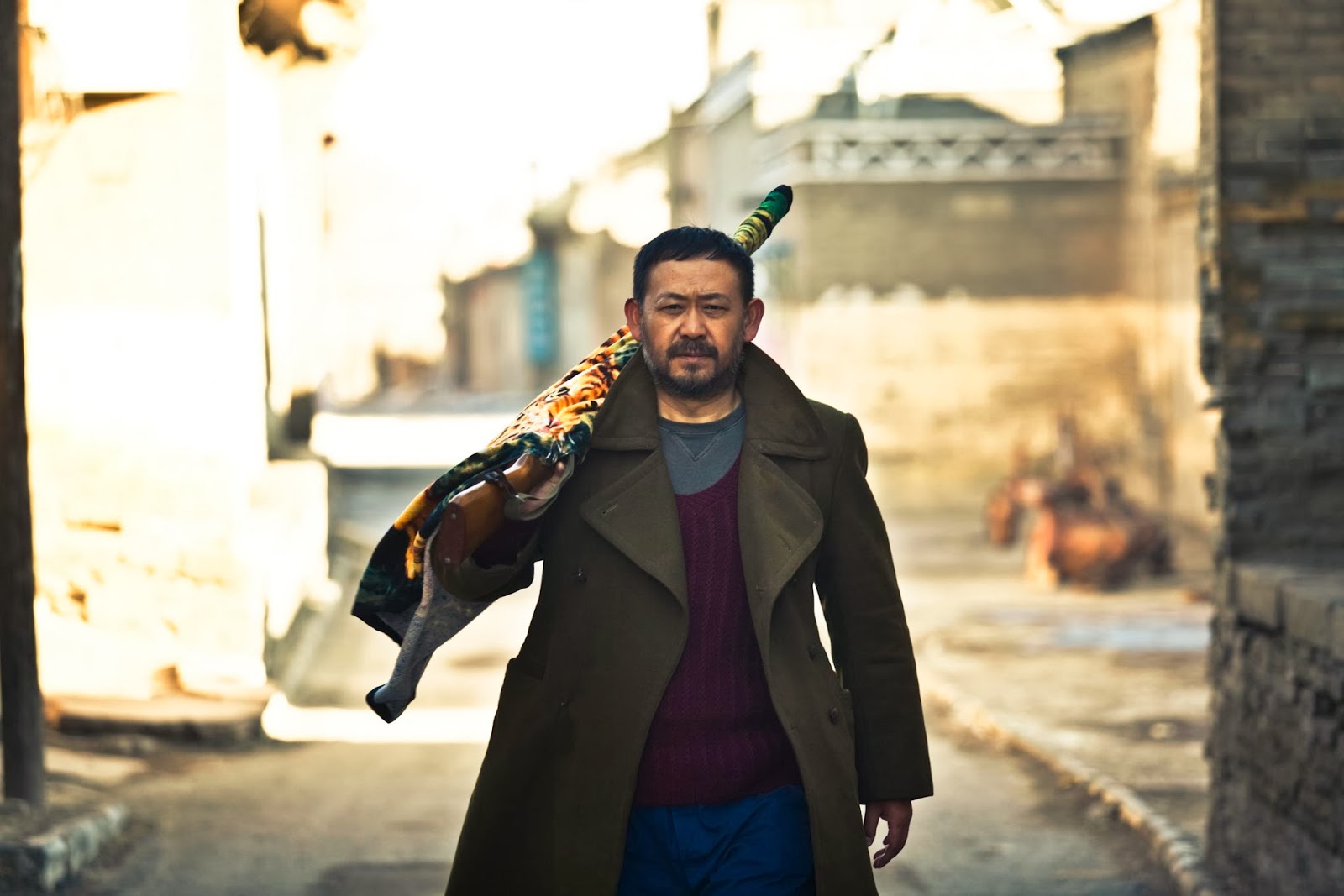A Touch of Sin
Runs Fri., Jan. 3-Thurs., Jan. 9 at Northwest Film Forum. Not Rated.
125 minutes.
The Secret Life of Walter Mitty isn’t the only picture peddling fantasy right now, but Jia Zhangke’s vision is considerably darker than that of Ben Stiller. In the misfire that is Mitty, a virtuous, underappreciated schlub dreams of grandeur—then is vindicated in real life, too (see: cake, eating, having, extra frosting, etc.). Jia offers four unhappier linked scenarios here, based on real news events, following an embittered coal miner, a rootless criminal, a lovelorn receptionist, and a teenage factory worker drifting from job to job. All are from villages being obliterated by new factories, railways, airports, and roads. Most are nomadic, finding jobs where they can and wiring money back home to elderly parents or neglected wives and kids. They’re cogs in the machinery of China’s relentless modernization, so is it any wonder they dream?
A short prologue leaves three dead and ends with a fiery explosion—more like a Western action movie than Jia’s prior realism (The World, Still Life, 24 City). Later in the film, bus passengers will watch such a violent Hollywood flick; these are the scenes, Jia suggests, that are displacing the old peasant songs, national mythology, and Chinese opera. Their imaginations are being systematically Ben Stillerized.
Certainly the pissed-off coal miner Dahai (Jiang Wu) has seen a few revenge movies. He’s a local dissident trying to send a protest letter to Beijing about how the village bigwig sold off the mine and pocketed the proceeds. Now Dahai’s childhood friend is a rich industrialist, flying home from a Hong Kong shopping spree on a jet and driving a Maserati. (These images also seem fed by our Western tabloids and bling.) “There’s no justice!,” says the indignant yet powerless Dahai, who then shifts from Lomanesque pathos to Bronsonesque retribution.
Also overmatched by a corrupt, inhumane system are the robber (Wang Baoqiang), the country girl (Zhou Tao, Jia’s wife) having an affair with a married man, and the factory teen (Luo Lanshan). The presence of iPhones and iPads gives them all a sense of connectedness not just to China’s rich, coastal elite but to the broader world of Bieber and Beyonce. A short generation before, their parents had no such awareness; nor was there such yawning social inequality to be aware of. Ironies abound: The teenager works as a lackey at a brothel called The Golden Age; and he later visits a sprawling factory town named Oasis of Prosperity (run by a Fortune 500 company, his Taiwanese boss proudly tells him). The state and its moneyed apparatchiks are no less enamored of fantasy, as when the brothel girls do a marching song for their clients while dressed in skimpier versions of the old Communist Youth uniforms. In this creepy, funny scene, traditions have just become another sexual fetish—like naughty nurses, nuns, or maids. The new economy gets to fuck the old social order.
“Shooting guns isn’t boring,” says the robber in his Chicago Bulls cap. What’s boring, to him at least, is the old village—where he reluctantly, infrequently returns. Not everyone in the film is so violent as he, but there’s a shared, stewing resentment that inevitably boils over. How many overworked, underpaid, and humiliated Americans haven’t dreamed of killing their bosses? After Columbine and so many other shooting sprees, those fantasies are taboo here; but in Jia’s vision of modern China, there aren’t enough bullets to go around.
bmiller@seattleweekly.com








